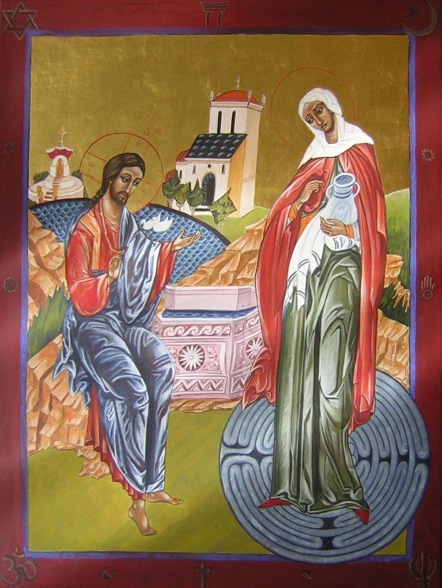 I was sat in our local Pastors Prayer meeting this morning – each week anywhere between 20 and 40 of us gather together from all manner of traditions and backgrounds from within Christianity to pray for our community. Anyway, I was sat there this morning and the appointed leader of our group was taking us through the steps of what we were to do during our time together. Today he had prepared a passage of Scripture for us on a piece of paper, and he was inviting us to spend about 20 mins in silence as we each read the Scripture and listened for God’s voice in the passage. Then we would come back together and use the things we had heard as we spent time in the passage as the source material for our prayers. As he led us he stopped at one point and asked the question : Can I get a witness? This is a phrase which might commonly be heard coming from preachers mouths in the midst of any church service. A preacher will use this question as a means of checking that a congregation is still with him or her and following what is being said. Either that or the preacher is using the question as a means of waking the congregation up a little – I’ll let you decide! Seriously though, when a preacher uses this question it is giving the community that is listening the opportunity to agree with or corroborate what the preacher is saying at that particular moment.
I was sat in our local Pastors Prayer meeting this morning – each week anywhere between 20 and 40 of us gather together from all manner of traditions and backgrounds from within Christianity to pray for our community. Anyway, I was sat there this morning and the appointed leader of our group was taking us through the steps of what we were to do during our time together. Today he had prepared a passage of Scripture for us on a piece of paper, and he was inviting us to spend about 20 mins in silence as we each read the Scripture and listened for God’s voice in the passage. Then we would come back together and use the things we had heard as we spent time in the passage as the source material for our prayers. As he led us he stopped at one point and asked the question : Can I get a witness? This is a phrase which might commonly be heard coming from preachers mouths in the midst of any church service. A preacher will use this question as a means of checking that a congregation is still with him or her and following what is being said. Either that or the preacher is using the question as a means of waking the congregation up a little – I’ll let you decide! Seriously though, when a preacher uses this question it is giving the community that is listening the opportunity to agree with or corroborate what the preacher is saying at that particular moment.
Having a witness or witnesses to back up the claims we make is important. Whether claims are being made in a sermon in church or by an individual testifying in a criminal court – if we do not have someone or some evidence to prove that what we are saying is the truth then any testimony simply becomes “he said/she said.” or “my word against yours,” and the truth proves impossible to find.
Jesus has just made a staggering claim before the Jewish leaders – a claim that could get him in a lot of trouble with them. He has made the claim that he is God’s own son, or, as would be understood in that culture, that he is equal with God. This is a claim which must be backed up by evidence, and Jesus knows this.
That’s why John includes the todays passage.
Jesus knows that in a case of his word against anyone else’s word there is no grounds for his claim to be believed.
But Jesus has got evidence.
Jesus has got witnesses.
His first witness was John the Baptist, as John the author has already pointed out in the prologue:
“There was a man sent from God whose name was John. He came as a witness to testify concerning the light, so that through him all might believe. He himself was not the light; he came only as a witness to the light.”
John had been accepted by and large as a man of God who also had a message from God. In modern parlance you might say that John was a respected religious leader whose authority on all things spiritual would not normally be questioned. Jesus is making the point to the Jewish leaders that he has John the Baptist in his corner as a witness and corroborator of the claims that he is making about himself:
“You sent to John and he has testified to the truth”
The ministry of John the Baptist had been to point to the one who was to come from God.
John the Baptist had seen Jesus and exclaimed, “Look! The Lamb of God!”
Jesus has John the Baptist as a witness to back up the claims that he is making about himself.
But that is not all.
Jesus has a testimony that is even “weightier” than John’s, namely the works that he is doing, having been sent by the Father to do them. He has turned the water into wine at Cana. He has met with a Samaritan woman, told her everything about herself and offered her living water and new life. He has healed the man who has been sick and waiting by the pool of Bethesda for 38 years. In pointing to these things Jesus is asking the question of his doubters: If this power, if these acts are not of God, then where or who are they from? And if they are from God then are they not proof that what Jesus is saying to you might just be the truth?
Jesus has indeed got witnesses, and still the people who have been waiting for him, and who are watching him act do not believe him.
“He came to his own and his own would not receive him”
Jesus then meets their accusations of him with an accusation of his own when he tells them that they do not even appear to believe in the things that they profess to believe in. These people have built their lives around the law that came through Moses – they are good, law abiding, ritual-observing people no doubt, yet they have absolutely and completely missed the spirit of that same law. Where this not the case then these observers would have no problem accepting the testimony of Jesus and the witnesses he has to back it up. As Tom Wright puts it:
“…they don’t know the God they profess to believe in. They have not truly seen [God] or heard [God]. [God’s] word finds no place in them.”
“He came to his own and his own would not receive him”
The worrying thing in all this is that these deniers were the religious people of the time and place. They were the ones who were seemingly engaged in the story of God; who were attentive to the ways of the Divine.
They believed the story of God in their lives.
They practiced the rituals of God in the Temple.
They knew the word of God in their minds.
Yet when God showed up among them in Christ, they could not recognize him.
I can’t help but wonder if me and the rest of the religious people of today’s world might be in a similar boat, which is where this text speaks to us today.
Jesus has said who he is – God’s son; the Chosen One; the Light of the World.
Jesus has witnesses (‘a great cloud of them’) to back up his claims.
The only question for us is this one: What will we do with him?
In his day, and as we have seen in these opening 5 chapters, when folks were faced with the full story of who Jesus is they had to make a decision to either reject him or follow him. Following Jesus led to a new life being transformed from the inside out (4:14). Rejecting him meant doing nothing and experiencing nothing new (when you do what you’ve always done, you get what you’ve always got!). In our own days the choice is still the same and the results of that choice are still the same.
So what will you do?

 In this section there are two major things taking place which are worthy of comment – the healing which Jesus brings to the man by the pool, and the subsequent reaction of the Jewish leaders.
In this section there are two major things taking place which are worthy of comment – the healing which Jesus brings to the man by the pool, and the subsequent reaction of the Jewish leaders.




 John has taken the first chapter to prologue his story; telling us much of what we need to know about who Jesus was (Son of God/true Light/God’s Chosen One) and what he came to do in the world (baptize with the Holy Spirit/make transformation possible for human life.) The remainder of John’s Gospel is the fleshing out of Jesus’ story and all along the way John drip feeds his readers with little signs and hints of where Jesus’ story ultimately going.
John has taken the first chapter to prologue his story; telling us much of what we need to know about who Jesus was (Son of God/true Light/God’s Chosen One) and what he came to do in the world (baptize with the Holy Spirit/make transformation possible for human life.) The remainder of John’s Gospel is the fleshing out of Jesus’ story and all along the way John drip feeds his readers with little signs and hints of where Jesus’ story ultimately going.